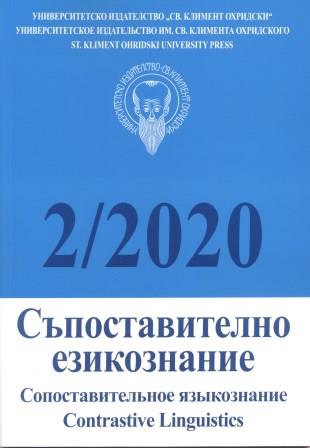Сложните форми на глаголните времена – пресечна точка на темпоралност, аспектуалност и модалност (по наблюдения върху българския и романските езици)
The complex forms of verbal tenses – at the crossroad temporality, aspectuality and modality (on data from Bulgarian and Romance languages)
Author(s): Evgeniya VuchevaSubject(s): Language and Literature Studies, Theoretical Linguistics, Lexis, Semantics, Philology
Published by: Софийски университет »Св. Климент Охридски«
Keywords: complex verb forms; formal semantic analysis; temporality; modality; aspectuality
Summary/Abstract: The proposed formal semantic analysis outlines the constituent elements of the complex verb forms as carriers of certain categorical contents. The intersection of the categories of temporality, modality and aspectuality reveals their interdependencies in functional terms and allows the complex verb forms to be considered as relatively motivated linguistic signs. Despite the temporal localization in the past or in the future within the languages in contrast, there is a preference to the verb of possession have (habēre/ tenēre), showing the influence of the category of possession ~ resultativeness on the formation of the temporal forms.
Journal: Съпоставително езикознание / Сопоставительное языкознание
- Issue Year: 2020
- Issue No: 2
- Page Range: 30-41
- Page Count: 12
- Language: Bulgarian
- Content File-PDF

